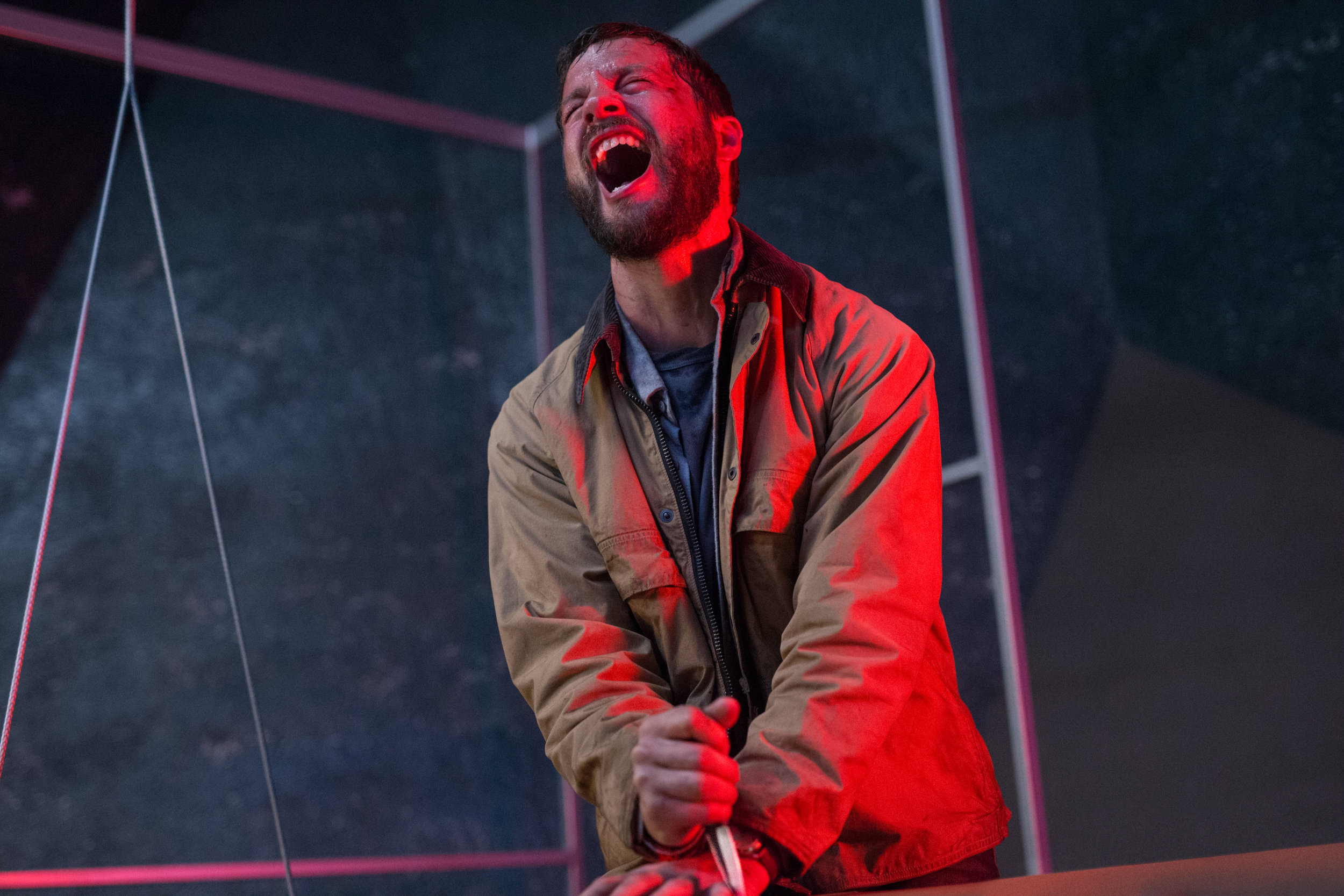Upgrade: A cyber-future B-movie that elevates its dystopian genre
By Liam Lacey
Rating: B-plus
A playful take on the idea of a software “bug” that is also a programming feature, Upgrade spins a glib but tautly-crafted sci-fi allegory of the near-future, wherein a cockroach-like computer chip will begin to crawl up our spines and take control of our individual brains and eventually society.
Directly inspired by the Robocop/Terminator era of ‘80s films (with a nod to William Castle’s 1959 horror classic, The Tingler), Upgrade takes elements of present-day technology — driverless cars, voice-activated home technology, and computer chips to help people with spinal-cord injuries regain mobility, and then pushes those ideas to hair-raising conclusions.
Upgrade is the sophomore film from Leigh Whannell (Insidious 3), the Australian writer-producer behind the Saw and Insidious franchises. And it’s very much a genre upgrade itself for Whannell — a middle-class middle-brow revenge thriller, though it maintains a tongue-in-cheek enthusiasm for violent excess. The story focuses on Grey Trace (gruffly appealing Logan Marshall-Green, who could be Tom Hardy’s brother). He’s an old-fashioned man’s man who listens to Howlin’ Wolf on the record player while he repairs vintage muscle cars in his suburban home garage. His wife, Asha (Melanie Vallejo) brings home the paycheque with her job at a robotics company, driving back in forth in what appears to be a DeLorean covered in gold lamé stick-on tiles. Swanky!
Logan Marshall-Green is having issues with his cyber-implants in Upgrade.
One night, Grey, in an effort to impress Asha, takes her to visit one of his clients, a tech billionaire named Eron (not not Elon, Eron), played by Harrison Gilbertson as an epicene introvert, who lives in a sumptuous underground home. For some reason, Eron shows them his latest masterpiece — a cockroach-shaped computer chip called STEM that he says is the last word in artificial intelligence.
On the way home, Asha’s driverless car goes haywire, crashing into a skeevy, violent part of town over-run by gangs. Asha ends up shot dead, and Grey is left paralyzed from the neck down. Back home, the depressed Grey tries to figure out how to kill himself but neither his loving mom or his robotically assisted devices will help. Eron shows up at the hospital with a proposal: If Grey agrees to a top-secret surgical procedure that will put the STEM implant in his spinal column, he can walk again. The bonus is he can help track down his wife’s killers and give him new-found super-powers.
There are a few hitches. STEM also talks to him (voiced by Simon Maiden) in the same creepy tones as HAL 9000, though only Grey (and those of us in the audience) can hear his inner computer speaking. Given permission, STEM also can turn Grey into a ruthless close-combat fighting machine, with a tendency to post-fight nausea. After one such encounter, STEM is compelled to advise Grey to please clean up the vomit in the sink; it could provide DNA evidence of his presence.
An added wrinkle is that Grey must keep his super-powers hidden, even from his doting mom (Linda Cropper) and especially from a woman detective (the impressive Betty Gabriel, who played the maid in Get Out) who is trying to solve his case.
Why is it, she wonders, that Grey, despite the limits of wheelchair travel, keeps being located in the vicinity of spectacularly messy murder scenes? All of these take place in seedy parts of town, filled with biker bars, dilapidated apartments, rogue hackers and guys with wires in their bodies. As dystopian future-set movies like to remind us, the rising techological tide will still leave a lot of people scuttling around the bottom.
In the last few decades, Hollywood studios have inflated traditional B-movie material such as comic books, fantasy literature with massive budgets, famous stars and elaborate special effects, that belie their fundamentally tacky roots. More often than not, they’re more overbearing than entertaining. In contrast, the triumph of a film like Upgrade, an unapologetic B-movie, is that it aims low and exceeds expectations.
Upgrade. Directed and written by Leigh Whannel. Starring: Marshall Logan-Green, Betty Gabriel, Harrison Gilbertson, Simon Maiden, Benedict Hardie, Melanie Vallejo and Linda Cropper. Upgrade can be seen at the Scotiabank Theatre, Imagine Carlton Cinema and Canada Square.

